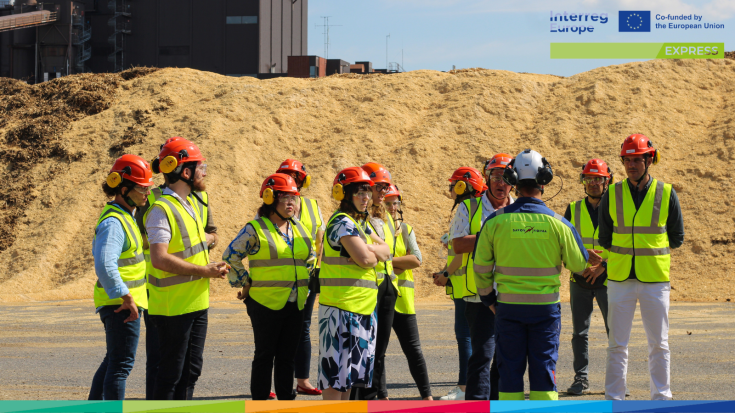Finland | Exploring bioenergy production in North Karelia

The first study visit of EXPRESS project took place North Karelia at the end of June. The energy transition boosted by the war in Ukraine was discussed in Joensuu. European countries have started to strengthen energy self-sufficiency and seek alternatives to imported fossil fuels, which will also accelerate the measures for achieving the EU's climate targets.
Visitors from seven different European countries got acquainted, for example, with the pilot projects of the Karelia University of Applied Sciences, the ongoing energy investments of the Savon Voima Iiksenvaara heat and power plant and the trends in heat entrepreneurship at heating plant of the Eno Energy Cooperative in Koli.
A common feature of the energy sector in EXPRESS partner regions is dependence on imported fossil energy, in particular Russian natural gas. According to Project Manager Timo Tahvanainen, there are major differences in the share of renewable energy between the countries involved in EXPRESS. The EU average is less than 20%, below which are Ireland, Poland, France and Hungary. Finland's share of renewable energy is just over 40%, and more than 70% has already been achieved in North Karelia.
“Local energy sources covered two thirds of consumption in North Karelia in 2020, and more than half of the energy used in the region currently comes from wood,” Tahvanainen says.
When the objective of the project is to share expertise and good practices, North Karelia can serve as an example for other project countries of diverse and efficient bioenergy production. Potential for hydrogen economy in North Karelia has recently been roadmapped by Lappeenranta University of Technology and the expectations for investments in large-scale wind and solar power are high.
"Opportunities to increase the share of local renewable energy sources are being investigated in all EXPRESS partner regions. The potential of heat pumps and solar energy is widely recognized, but high investment costs and partly lack of information are reducing green investments. In addition to energy saving and waste heat, there are also unexploited opportunities in various agricultural and forestry biomass and recycling fractions,” Timo Tahvanainen sums up the discussions held during the visit.
